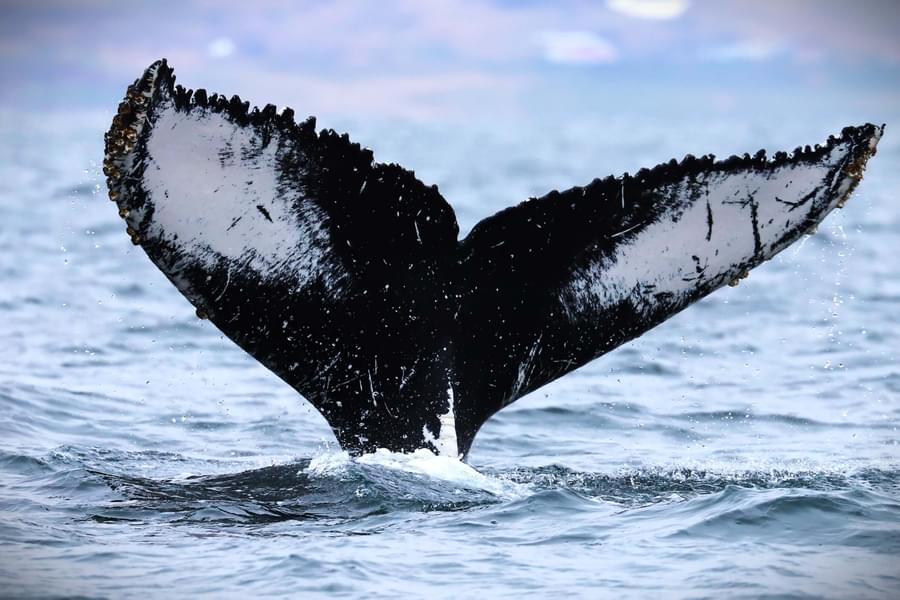This Earth Day, Ocean Conservationist Gemma has been diving into how ORCA’s work helps protect whales and dolphins around the world and how you can help us continue our vital work.
What is Earth Day?
Earth Day originated in the United States in 1970 in response to growing concerns about environmental degradation and pollution. The first Earth Day took place on April 22nd, 1970, and drew millions of people across the United States to rallies, protests, and educational events. This groundbreaking event sparked a wave of environmental activism leading to the establishment of the Environmental Protection Agency (EPA) and the passage of key environmental legislation including the Clean Water Act. Since its inception, Earth Day has evolved into a global phenomenon, uniting millions of people each year with a shared commitment to environmental protection. Earth Day aims to raise awareness of current environmental challenges and priorities whilst reminding us how collective, global action is essential to protect our planet.
How Do Cetaceans Keep Our Planet Healthy?
Maintaining robust populations of cetaceans (whales, dolphins, and porpoises) is essential for the health of our oceans, which in turn is vital for a healthy planet. Cetaceans play an important role in marine food webs as apex predators, regulating prey populations which prevents overgrazing. They also serve as prey for other marine predators, contributing to the complex web of predator-prey interactions that sustain biodiversity and ecosystem resilience. Their feeding activities and migration patterns distribute nutrients across vast oceanic regions, stimulating phytoplankton growth and productivity - this is known as the whale pump. This, in turn, supports zooplankton and krill populations, benefitting a wide range of marine life, including fish, seabirds, seals, sea lions, and cetaceans themselves.
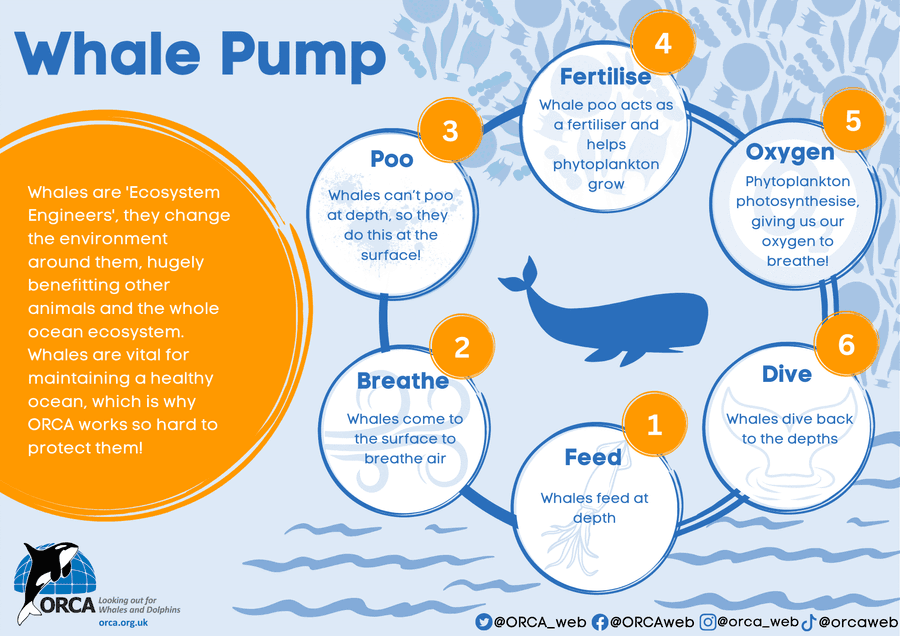
The health of marine ecosystems is intricately linked to the overall health of our planet. Thriving oceans support diverse marine life and contribute significantly to oxygen production and carbon sequestration, playing a crucial role in mitigating the climate crisis. Given the urgency of current environmental challenges, conserving our oceans and their inhabitants is more critical than ever.
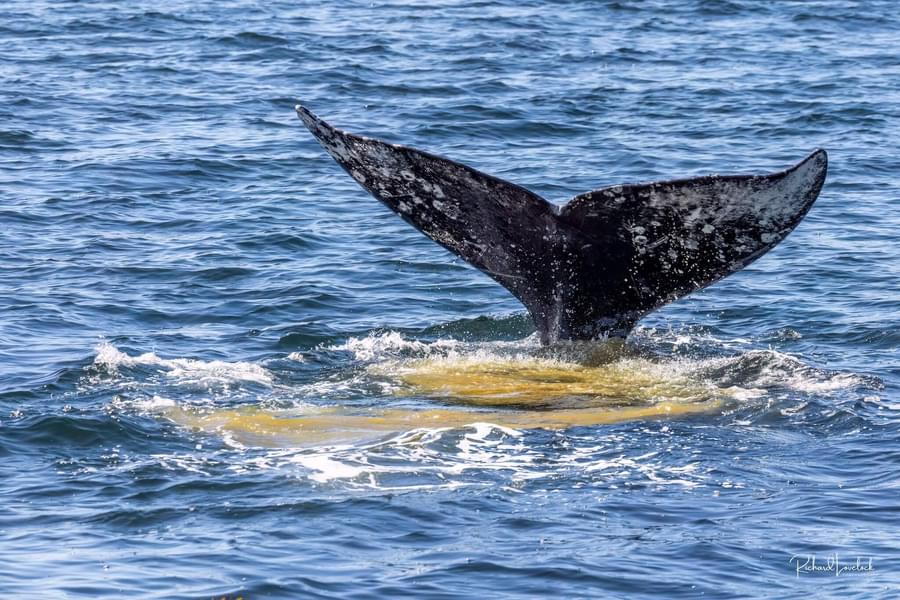
How ORCA Protects Cetaceans
Cetaceans are highly mobile, traversing vast distances across the world’s oceans, and tracking them down to study is logistically challenging. This is why ORCA is proud to collaborate with our fantastic partners in the shipping industry. Being on board cruise ships and ferries enables us to collect data in offshore waters that would typically be extremely difficult to access for research. To inform effective mitigation measures aimed at protecting cetaceans, it is crucial first to identify key habitats. Put simply, we cannot protect cetaceans if we don’t know where they are, what they’re doing, which areas serve as critical habitats, and which areas are high risk. By collecting data across various shipping routes, we can gain insight into behaviour, abundance, and distribution, allowing us to identify areas with high densities of cetaceans. This, in turn, helps us to prioritise key habitats and populations and inform targeted conservation efforts. Monitoring cetacean populations can also offer valuable insights into environmental changes. Shifts in population numbers or habitat usage can alert us to issues such as overfishing, pollution, and climate change. By tracking changes in cetacean populations, we can detect environmental changes and implement timely conservation measures. Continued monitoring is essential as this helps us evaluate the effectiveness of conservation efforts and adapt strategies as needed to ensure the long-term survival of cetaceans across their global range.
In addition to our population monitoring efforts, ORCA collaborates with researchers to trial new technologies to better understand whale behaviour in response to marine traffic. By improving our understanding of how whales respond to ship presence, we can use this data to inform mitigation strategies and protect them from collisions with vessels (ship strike). ORCA is also proud to work with industry partners to advocate for responsible cetacean-based tourism practices. We have recommended guidance for responsible whale watching to encourage people to enjoy viewing cetaceans in the wild whilst respecting their space and keeping disturbance to a minimum. Another vital aspect of ORCA’s work is to raise awareness among the general public about how their choices can positively impact cetacean conservation and welfare. This includes encouraging people not to purchase whale-based products when visiting whaling nations and informing them about the implications of visiting dolphinariums for captive cetacean shows.
Protecting cetacean populations is a significant undertaking that requires a multi-faceted approach and effective collaboration. This is made possible by our partners, our dedicated network of Marine Mammal Surveyors, Ocean Conservationists and Ocean Watchers. Together, they collect data which allows ORCA to gain valuable insights into the status and trends of cetacean populations. The wonderful generosity and support of the general public is also instrumental in enabling us to continue our work so we can safeguard cetaceans and their habitats. Through these collaborative efforts, our data continues to make a significant impact in marine conservation. Earlier this year, ORCA’s data provided evidence to support the designation of 33 new Important Marine Mammal Areas (IMMAs) in the Baltic and North Eastern Atlantic (read more here). This will offer valuable protection for diverse marine mammal species including the critically endangered Baltic sea harbour porpoise (Phocoena phocoena) and the endangered Saimaa ringed seal (Pusa hispida saimensis).
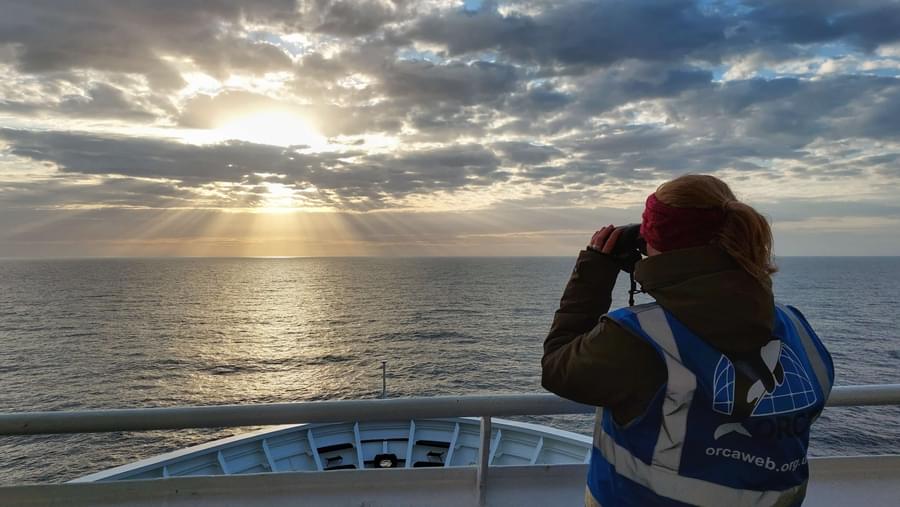
Continued monitoring efforts not only improve our understanding of better-studied species but also sheds some light on lesser-known species that are poorly understood. For example, beaked whales are considerably understudied due to their deep diving behaviour and offshore distribution. Excitingly, ORCA recorded regular sightings of beaked whales, including the rarely seen strap-toothed beaked whale (Mesoplodon layardii), while sailing from the Falklands to South Georgia in December 2023. These observations highlight the importance of ongoing monitoring efforts in uncovering new information about elusive species and populations.
There are numerous threats facing cetaceans today with many species, subspecies or populations classified under various categories of endangerment by the IUCN Red List of Threatened Species. They are in dire need of our help. Not only are cetaceans vital ecosystem engineers, but they hold great spiritual and cultural importance to many people worldwide. These awe-inspiring animals, widely referred to as charismatic megafauna, embody the essence of joy and freedom. From the soulful songs of humpback whales to the graceful aerial displays of spinner dolphins, cetaceans truly captivate the human imagination and evoke profound feelings of connection. It is imperative that we continue collecting data to inform protective legislation, ensuring the safety of whales, dolphins and porpoises, and the stability of our oceans for future generations. Through collaborative actions and shared responsibility, we can work towards a sustainable future for all life on Earth.
ORCA rely on the support of people from all walks of life, so if you would like to help support our work longer term you can join as a member, make a donation or you can even become a Citizen Scientist yourself by joining one of our training courses to volunteer so ORCA. We have just launched an exciting new Whale & Dolphin Identification course ideal for beginners so everyone can get involved, regardless of experience.
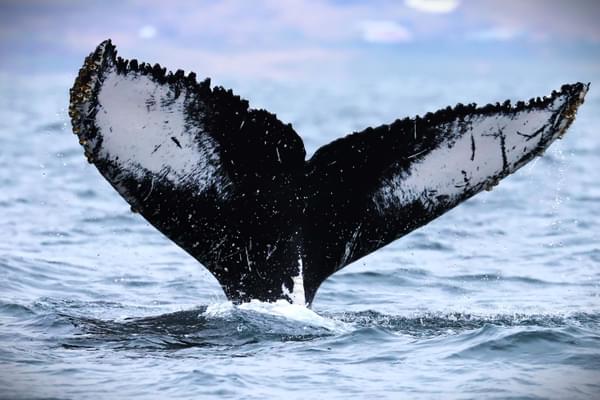
Without the support of our amazing members and volunteers, we wouldn't be able to help keep these amazing animals safe so we thank you all for your continued support and wish you a happy World Earth Day.

